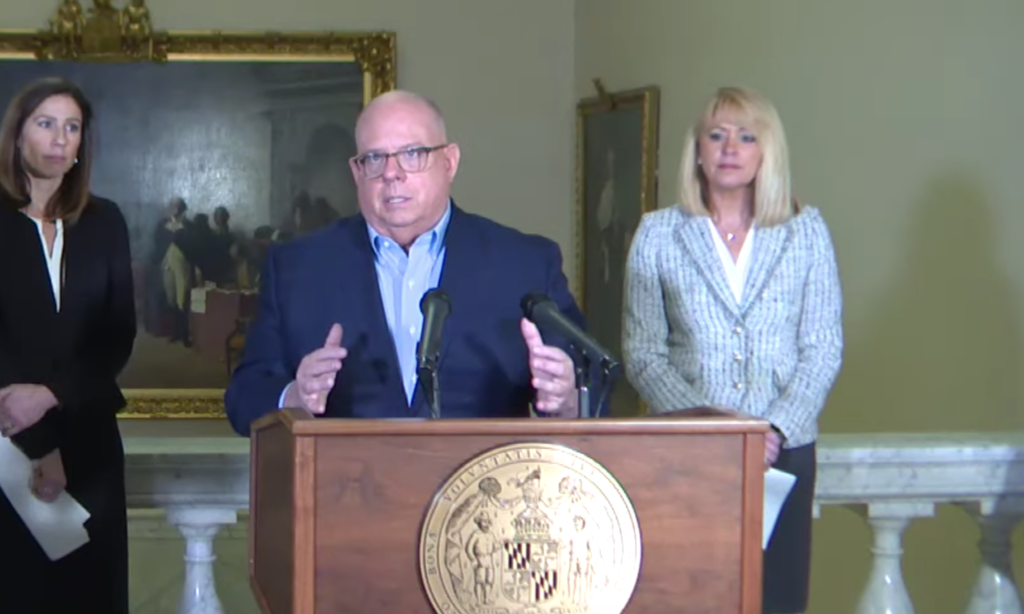On Monday, Maryland Governor Larry Hogan ordered all “nonessential” businesses closed in response to the Coronavirus. Consulting federal guidelines, Hogan provided a list of businesses determined “essential” that can remain open. The Interpretive Guidance document for the state of Maryland released by Hogan—which you can read here—differs in at least one way from the federal guidelines: It includes “medical cannabis growers, processors, and dispensaries” under the category of “The Healthcare and Public Health Sector” (that is because, cannabis is illegal under federal law).
Hogan stressed that the closure of nonessential businesses does not constitute a “shelter in place” order. Marylanders are encouraged to stay home and in their neighborhoods as much as possible but are allowed to be out and about. This means for the time being, Marylanders with medicinal cannabis cards can continue to purchase cannabis and caregivers can access cannabis from dispensaries and deliver it to those in need.
Since the beginning of March, the Maryland Medical Cannabis Commission (MMCC) has been providing recommendations for how dispensaries should operate amid the pandemic and updating those recommendations based on additional information about the Coronavirus.
People working in dispensaries are instructed by the MMCC to employ all of the Centers for Disease Control and Prevention (CDC) recommendations such as maintaining a distance from one another, not shaking hands, no sharing food, and clean “frequently touched surfaces.” Along with those rules, the MMCC has also suspended what they call “deli-style” dispensary services and eliminating the use of “sniff jars.” And so, all patients and caregivers will now purchase and obtain cannabis in the parking lot of dispensaries.
“In order to reduce the number of individuals accessing the service area, the Commission will allow dispensaries to deliver medical cannabis to qualifying patients and caregivers in a vehicle parked in the dispensary’s parking lot,” an MMCC memo explained.
The patient or caregiver must be in their car, they cannot be outside of their car in the parking lot. This also means patients and caregivers must contact dispensaries ahead of time with their orders and also must show their identification from the car to verify they are who they say they are. For caregivers, the patient signature requirement has been temporarily suspended in order to be mindful of social distancing.
The MMCC will also allow healthcare providers to approve renewals for medicinal cannabis patients via “telehealth” as it “relates to the delivery of healthcare services [through] the use of interactive audio, video, or other telecommunications or electronic technology by a licensed health care provider to deliver a health care service within the scope of practice of the health care provider at a location other than the location of the patient.” New patients however, must still be seen in person and when the pandemic is considered over, those who spoke to their provider via telehealth for renewals are encouraged see their provide in-person: “The Commission strongly encourages certifying providers to schedule an in-person assessment with each patient who receives a telehealth written certification renewal after the state of emergency is terminated.”
One thing that has not changed is the 30-day supply limit for cannabis purchases. That remains in effect.

